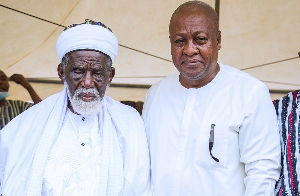I had just acquired a new Blackberry Pearl mobile phone which had an inbuilt or wireless connection or Wi-Fi for short). I decided to try the free Wi-Fi connection at the Accra Mall at the Tetteh Quarshie Circle in Accra to have a feel of the internet on my phone. Whiles there, my phone picked up three (3) available wireless connections. Each asked for a password and upon approaching the 3 retailers for the passwords, I was informed it was not free and that I had to subscribe and pay for it. They are not free at all.
This experience reminded me of a friend who also was surprised not to get free wireless connection at Kotoka Airport when he needed to send an urgent document to someone.
This opened my eyes to the issue of the unavailability of free wireless zones for the general public regardless of the strides in ICT growth the country has experienced.
What Is Wi-fi?
What then is a wireless connection or Wi-Fi?
Wi-Fi or wireless internet refers to using gadgets to connect to the internet without using cables or wires. In other words it involves using a laptop, mobile phone or computer tablet to connect and surf the internet without a wire or cable connection. The gadget been used should have Wi-Fi capability in-built in them.
The focus of this piece is on free Wi-Fi connection especially for individual consumers using laptops, mobile phones and tablets. Wireless connections for the purposes of this write up means usage in recognized public places and not homes or offices. A Wi-fi hotspot or zone refers to a physical location that offers internet connection wirelessly.
Internet usage belongs to a category of mobile telephone called ‘data’. Data includes browsing the internet, sending emails or downloading files. In Ghana internet usage or internet penetration rate is very low at 10% compared to a mobile phone penetration rate of about 88%. Most of the mobile telephony has to do with another category called ‘voice’ (phone calls and text messages).
However with the telecommunications sector being the most competitive in the country many analysts predict that revenues from voice will decline. The future revenue streams will come from data services (internet).
The growth of internet in Ghana is relevant because its growth has a bearing on national economy.
At a career event for students organised by Albert and Comfort Ocran’s Springboard firm at Ho in March this year, Cythia Lumor the Corporate Services Executive of MTN revealed some interesting facts.
o Ghana’s telecom sector contributes 2% to the country’s Gross Domestic Product (GDP).
o The telecommunication companies (or Telcos) contributed 10% of all taxes paid to government.
o Telcos provide 4,000 direct employment and 1 million indirect employment to other persons.
o For every 1% of internet penetration in the country, there’s a corresponding 1% increase in economic growth.
It is the last point that is of interest for the purposes of this article. That is growth in internet penetration in the country leads to growth in the economy in general. Almost all the major sectors of our economy like the oil and gas, mining, manufacturing all require data and information consumption systems for their work.
The Ghana Statistical Service revealed that in the year 2010, the country’s services sector experienced the most growth and the telecom sub-sector was the biggest driver of this growth.
Benefits of Wi-Fi
The use of Wi-Fi internet connection has many advantages.
Firstly many mobile phone networks are already jammed or overstretched leading to dropped phone calls, delayed text messages and slow internet download speeds. With specially demarcated Wi-Fi zones, it becomes a way of ‘de-congesting’ the internet connection on a network especially for Smartphone users.
Secondly many gadgets come with Wi-Fi capability pre-installed. With investment to improve network systems, Wi-Fi connection could be faster than 3G connection. This will create a better browsing experience for consumers. Advances in technology especially features in the newer version of Wi-Fi 802.11n, increases the range and speed of connections.
Lastly, specially created Wi-Fi hotspots and zones can benefit allied sectors like banking and health. If more people to make use of free internet to browse, those who have bank accounts are likely to undertake simple transactions like checking balances, requesting for cheque books, buying phone credits and so on. This in the long-run could help de-congest the banking halls.
There are very few Wi-Fi zones in Ghana despite its numerous advantages. Where they are available they are not free making them prohibitive.
Wi-Fi Hotspots Worldwide
It will be useful to compare Wi-Fi hotpot available in other countries to enrich our discussion.
As far back as 2005, the city of Sunnyvale in California became the first in the US to offer free city-wide wireless internet connection for the city’s residents.
In the United States (US), there are many free Wi-Fi hotspots in public libraries, amusement and public parks, subway (train) stations, airports, restaurants and cafes .They are free to use and when the ones in restaurants and cafes are password-protected, the passwords are given when one buys a drink or coffee.
From 2010, US mobile operator AT & T in collaboration with city officials began piloting free public wifi for its subscribers. This saw free wi-fi zones created in Times Square in New York and other places in the city; also in Chicago and in Charlotte, North Carolina. This scheme serves thousands of people. The company also has over 20,000 Wi-Fi hotspots throughout the country.
Across Europe many cities offer free Wi-Fi zones in public parks and other places.
In Paris, there are several hundreds of free Wi-Fi zones in parks and municipal places for use by the public.
The City of London has a 95% Wi-Fi coverage. Telecom operators like BT, O2, Nokia and The Cloud have worked on different schemes to introduce Wi-Fi hotspots into the city. The Mayor of London, Boris Johnson has in place scheme known as ‘Project Wi-Fi’ and is working with the city’s councils and boroughs to sign up. The aim is to ensure that London is made a huge Wi-Fi zone in time for the London 2012 Olympic Games that starts this summer.
The scheme will also ensure that the city’s tube stations (underground train stations) are connected so that commuters can browse the internet whiles waiting for trains. With this scheme London will become Europe’s ‘biggest’ Wi-Fi zone.
Coming closer to home, in Nigeria there is free Wi-Fi connection which has been created in the Millennium Park in Abuja and also in some parts of the University of Lagos.
In the West African nation of Cape Verde, the government has set up FREE Wi-Fi zones in the country’s capital Praia other centers in the city. Students, tourists, young people and others can be seen in the pictures below making use of the free Wi-Fi internet.
Picture Credit: The BBC
The common theme that can be spotted across all the countries mentioned above is that the city authorities (or the government) partnered with private operators to provide free Wi-Fi hotspots for the benefit of the residents.
The benefit of public-private partnership in promoting internet usage with its attendant economic benefits is evident.
Wi-Fi Situation In Ghana Now
As indicated earlier, Wi-Fi hotspots are very few in Ghana. Vodafone Ghana has been the trail blazer in setting up those few ones in some strategic locations. The largest of these is on the campus of the University of Ghana, Legon where the company has set up a Wi-Fi zone that can serve about 5,000 students. However this is not free. Students have to buy a voucher to be able to use the Wi-Fi.
At the launch of this Wi-Fi zone in Legon, Carmen Bruce-Annan, Head of Corporate Communications at Vodafone said that, “For us, this is an initiative to deliver a superior internet experience to our customers and to widen internet access to Ghanaians in general. The world is rapidly globalizing and the internet has become a ‘must –have’ for one’s everyday life. We believe that people should not be deprived of internet access and we want to make this readily available to Ghanaians. ” This is obviously well intentioned but the fact that students who depend on students loans for their living costs should pay to use the wi-fi is my worry.
Vodafone has similar hotspots at the Kotoka International Airport, Labadi and Best Western Hotels, and the Villagio Apartments all in Accra. These are not free as in other cities mentioned above, these have to be paid for to be enjoyed.
As is the practice in the US, Europe and some countries in Africa, there must be a conscious effort by Ghana’s Ministry of Communications, the Accra Metropolitan Assembly (AMA) working in conjunction with the Telcos to demarcate and create wi-fi zones in Accra and other parts of thee country. These could start from some tertiary institutions, public places and other tourist areas. This is where public-private partnerships are needed.
Telcos in Ghana are at the forefront of Corporate Social Responsibility (CSR) activities aimed at giving back to the society and connecting with the communities in which they operate. I believe if impressed upon in good faith by the sector ministry working together with city bosses, wi-fi zones like the ones in Cape Verde could by created as a form of corporate CSR. These could help create a pool of people using this to bridge the digital divide and channel the energies of young people positively.
A common feature in Europe is that many transport firms running buses and trains that operate across cities have wifi installed on board. This allows travellers to use the on-board internet to enjoy the travel experience. This is also a tool to attract customers as a way of beating competition in the market for commuters.
Road transport accounts for more than 90% of all transportation. Long distance travel presents a lucrative competitive opportunity for transport firms like ‘VIP Buses’, ‘M Plaza Buses’, Ford buses and so on. The Accra-Kumasi route is the busiest in the country and weekends and special occasions make them tto be in high demand. The owners of these firms can team up with Telcos to install wi-fi on their buses. The fares of these routes could be increased slightly to reflect this wi-fi installation. But I am sure this can help whichever transport firm takes this on board to attract many commuters and also help customers enjoy their treks. Same applies for the Accra-Takoradi, Accra-Aflao route and even now the well patronised Accra-Lagos route.
Lastly, private entrepreneurs running restaurants, bars, shopping malls could have password-protected wifi installed on their premises. Customers who come and buy drinks and shop can be given the password to surf the internet. This can be used to increase customer traffic to their various premises to increase revenues.
With an internet penetration rate of only about 10%, future of growth and profitability lies in data services. Public-private collaborations have worked to offer free wi-fi internet hotspots for public use in other countries. Officials in Ghana must work together to help bridge the digital divide through free wi-fi zones and this will leave to economic growth and benefit to all parties concerned.
Opinions of Monday, 8 October 2012
Columnist: Sedzro, Anthony














